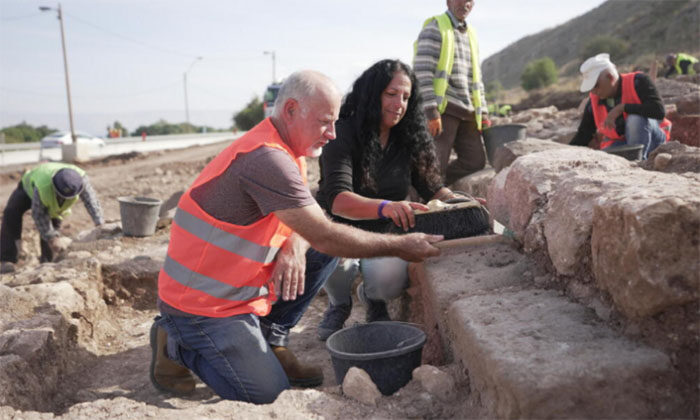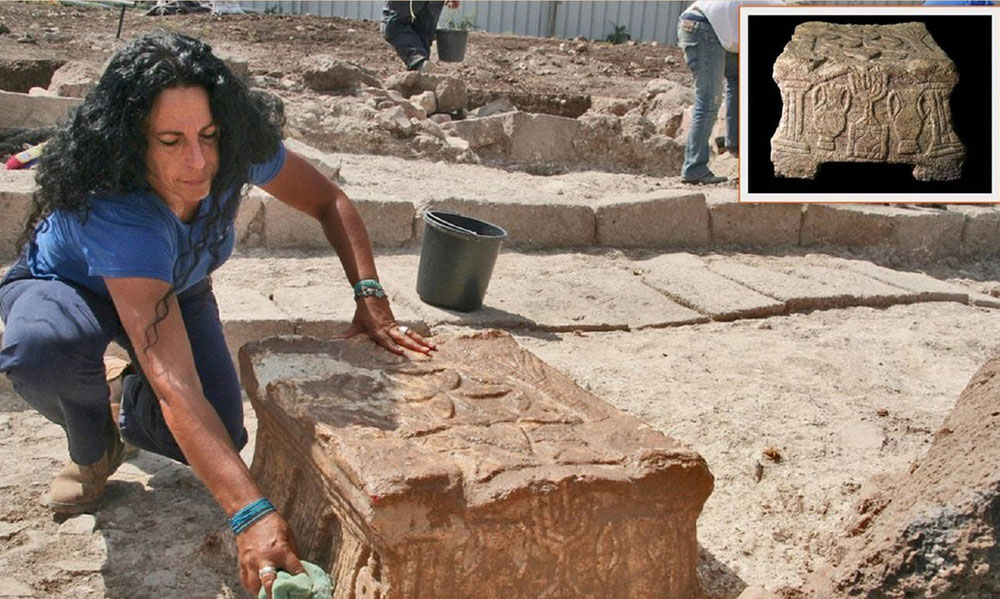
Dina Avshalom-Gorni and Dr Yehuda Guvrin in the synagogue that is currently being unveiled.(Photo: Israel Antiquities Authority)
Israeli archeologists have uncovered a synagogue in Galilee dating back to the time of Jesus.
Announcing the discovery, Haifa University said the synagogue in the town of Migdal on the north-western side of the Sea of Galilee is 2,000 years old.
Early Christians believed Migdal, formerly called Magdala, was the birthplace of Mary Magdalene.
According to the New Testament Gospels, she was one of the first eye-witnesses of the empty tomb after Jesus’ resurrection from the dead.
This is the second ancient synagogue archeologists have found in the town, which in 1st Century Galilee was a large fishing port and served as a base for military operations for the Jews in their war against the Romans from 66 to 70 AD.
In 2009, the Israel Antiquities Authority excavated the first synagogue from the Roman era to be discovered in Galilee, about 200 meters from the newly-found synagogue.
Dina Avshalom Gorny, who is directing the latest excavation for Haifa University, said: “The unveiling of a second synagogue sheds light on the social and religious life of Jews in Galilee during this period and indicates the need for a special structure for Torah study and reading and social gathering.”
Haifa University said the current excavation has revealed a wide, square structure built of basalt and limestone, with a central hall and two additional rooms.

The ceiling of the hall, which was probably made of wood and clay, was supported by six pillars. Two stone bases of these have been preserved.
“A small room on the south side of the hall contained a plastered stone shelf and may have served as a room for storing the scrolls,” the university added.
This is the first time that two ancient synagogues have been discovered in the same locality in Israel, Haifa University announced.

